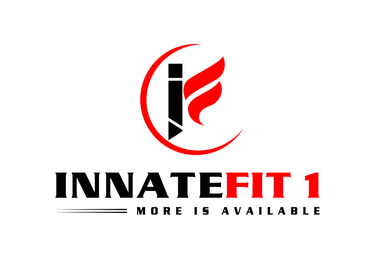Visit Innatefit1.com for exercise wear and equipment!!!
The Role of Mental Resilience in Fitness for Newbies
By fostering mental toughness through goal-setting, positive mindset practices, and seeking support, you position yourself for success.
FITNESS TIPSHEALTHY LIFESTYLE
Joseph Battle
1/14/20254 min read


Introduction
Physical strength is often hailed as the key to success in the fitness world. However, an equally vital component frequently goes unnoticed: mental resilience.
Bouncing back from setbacks, maintaining motivation, and enduring discomfort are just as critical when embarking on your fitness journey. Did you know that studies show nearly 70% of individuals who set fitness goals give up within the first few months?
This statistic highlights the importance of mentally tough individuals who can push through obstacles and stay committed to their fitness aspirations.
Understanding Mental Resilience
Definition of Mental Resilience
Mental resilience is the capacity to recover from difficulties and adapt to adversity quickly. In the context of fitness, mental fortitude helps individuals stick to their routines, overcome challenges, and push past their limits.
Cultivating mental resilience is essential for success for those just starting their fitness journey.
Importance of Mental Toughness
Mental toughness can significantly affect your fitness journey. It influences how you respond to challenges and failures. Those with mental toughness are more likely to stay committed, push through tough workouts, and ultimately achieve their goals.
When faced with obstacles or plateaus, mentally tough individuals view these challenges as opportunities for growth rather than reasons to quit.
The Connection Between Mental Resilience and Fitness
Physical vs. Mental Challenges
While physical training is essential, mental resilience is a complementary force that enhances physical capabilities.
Fitness routines can become monotonous, and motivation can wane; having mental resilience enables you to push through these moments when your body feels like giving up.
Benefits of Developing Mental Toughness
Developing mental toughness isn’t just about enduring pain; it offers numerous benefits, including improved motivation, discipline, and overall performance.
When your mind is strong, you’re more likely to stick to your fitness plan, enjoy your workouts, and find success in your endeavors.
Getting Started: Building Mental Resilience as a Newbie
Setting Realistic Goals
One of the best ways for newcomers to cultivate mental resilience in fitness is by setting realistic goals.
Utilizing the SMART criteria—specific, Measurable, Achievable, Relevant, and Time-bound—helps establish clear, actionable objectives.
Achieving these small milestones fosters a sense of accomplishment, bolstering mental strength with each success.
Developing a Positive Mindset
A positive mindset is critical to building mental resilience.
Techniques such as gratitude practices, journaling, and positive self-talk can help maintain focus and foster optimism, even when faced with setbacks or challenges.
Mental Toughness Tips for Newbies
Embrace the Discomfort
One of the newcomers' most effective mental toughness tips is to embrace discomfort.
Understand that challenges are a natural part of the process.
Learning to navigate these feelings will help you grow physically and strengthen your mental resilience.
Visualization Techniques
Mental imagery can be a game-changer.
Visualizing your goals, performance during workouts, and achievements enhances motivation and helps foster a sense of preparedness.
Take a few minutes each day to picture yourself accomplishing your fitness goals.
The Power of Affirmations
Affirmations are positive statements that can combat feelings of self-doubt and negativity. Craft statements that resonate with you and repeat them daily.
For instance, "I am capable of achieving my fitness goals" can be a powerful reminder of your strength and resilience.
Overcoming Common Mental Barriers
Understanding Self-Doubt
Self-doubt is a prevalent issue for many newcomers. Recognizing the triggers that lead to negative thoughts is the first step in combating them.
Whenever negative thoughts creep in, counter them with evidence of your past successes and capabilities.
Dealing with Setbacks
Setbacks are inevitable in any fitness journey. Instead of viewing them as failures, think of them as opportunities for reflection and learning.
Develop a strategy to bounce back, whether that’s tweaking your workout routine or seeking advice from more experienced individuals.
Incorporating Mindfulness into Fitness
Benefits of Mindfulness Practices
Mindfulness can be integral to enhancing mental resilience in fitness. It encourages individuals to stay focused on the present moment, leading to improved performance and reduced anxiety. Mindfulness helps filter out distractions, allowing you to concentrate on your fitness goals.
Simple Mindfulness Techniques for Beginners
For newbies looking to implement mindfulness in their workouts, consider the following techniques:
Breath awareness: Focus on your breathing patterns during exercise to maintain composure and clarity.
Meditation: Engage in short meditation sessions to enhance mental clarity and relaxation.
Body scans: Periodically tune in to your body's feelings, ensuring you’re aware of any tension or discomfort.
The Role of Community and Support
Finding Like-Minded Individuals
Building mental resilience is much more manageable when surrounded by supportive individuals.
Consider joining fitness communities—whether online or in-person—to find encouragement and camaraderie.
Sharing experiences with like-minded individuals can create a sense of belonging, which enhances motivation.
Building a Support System
Lean on friends and family for support. Surround yourself with individuals who encourage your fitness journey.
Whether through accountability partners or supportive cheerleaders, having a network can significantly bolster your mental resilience.
Tracking Progress: Mental vs. Physical
Keeping a Fitness Journal
Maintaining a fitness journal is an excellent way to recognize your mental growth. Document not only your physical milestones but also your emotional responses to challenges.
Reflecting on these entries can provide insight, showcasing how far you've come—mentally and physically.
Celebrating Small Wins
Don’t overlook the importance of celebrating small victories along the way.
Acknowledging your progress provides motivation and reinforces the notion that every step—however small—is a step forward.
Conclusion
In conclusion, cultivating mental resilience in fitness is crucial for beginners navigating their fitness journey.
By fostering mental toughness through goal-setting, positive mindset practices, and seeking support, you position yourself for success.
Remember, the road to fitness may have its share of bumps and challenges, but you can overcome them with resilience.
Now, it’s your turn! Share your experiences and tips on developing mental toughness in fitness. Your insights may inspire someone else to keep pushing forward!
